Netflix - Stranger Things 5 Kicks Off with Spectacle, Heartbreak, and Its Strongest Character Work Yet
By Mulder, 27 november 2025
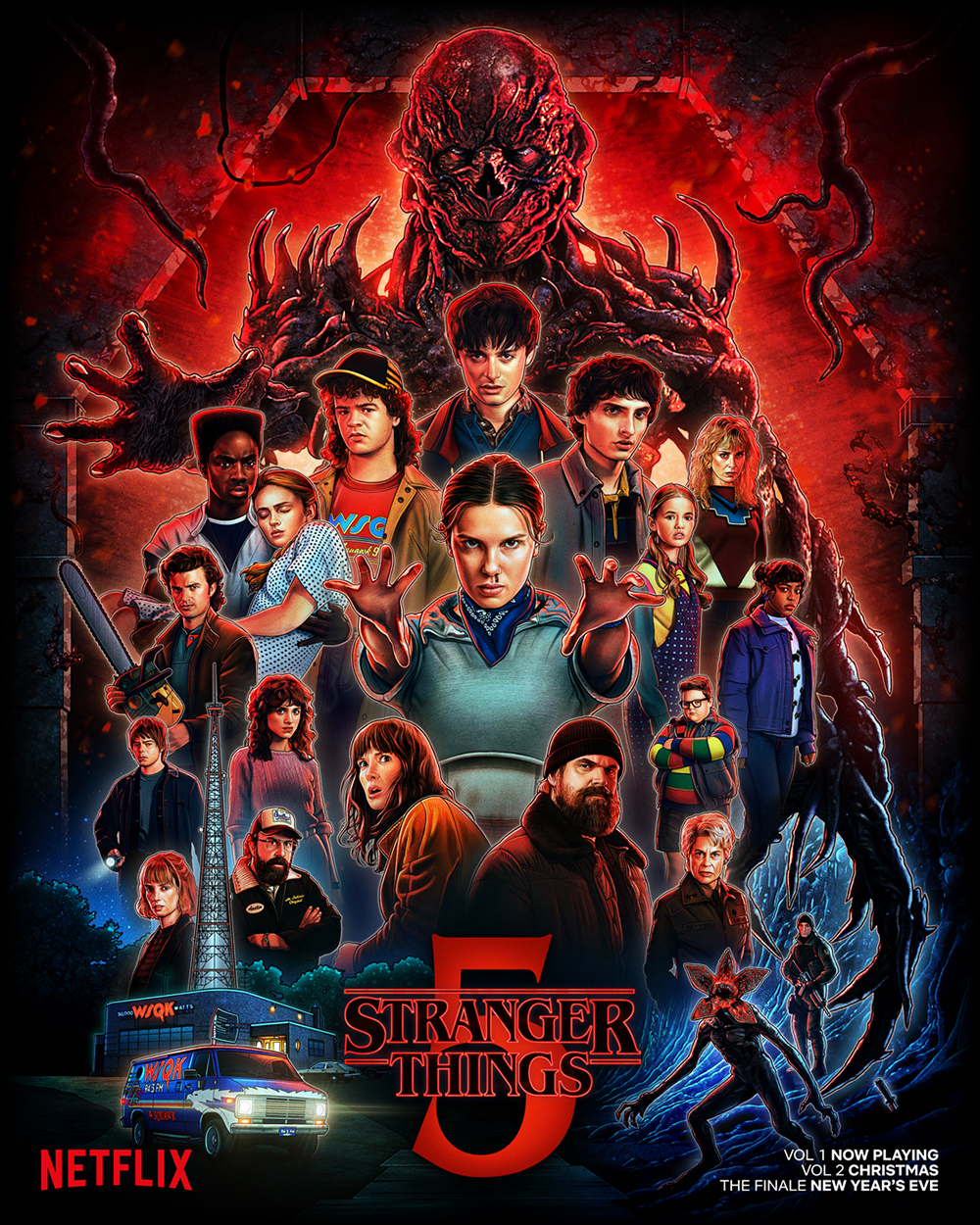
There is a strange emotional vertigo that overwhelms us from the start of season 5 of Stranger Things: a strange mixture of déjà vu, sincere admiration, and the gradual realization that we are witnessing the end of something that has shaped an entire generation of viewers. The novelty that once made Matt Duffer and Ross Duffer's universe such an unexpected treasure in 2016 has inevitably given way to the weight of expectations, and yet, against all odds, this first part of season 5, consisting of four giant episodes, manages to recapture the electricity of the series' beginnings. Set 18 months after the apocalyptic rifts tore through Hawkins, this Volume 1 (as Netflix calls it) wastes no time in plunging us back into the ash-covered chaos, now sealed under strict military quarantine, as if a Cold War bunker had swallowed an entire Midwestern town. And through this militarized haze emerges the same band of misfits we met nearly a decade ago, older, wiser, emotionally scarred by the fighting, clinging to each other with a desperate camaraderie that seems well-deserved after years of monsters, trauma, and near-death experiences.

What immediately stands out is the return to the intimate emotional fabric that defined the series at its peak. Despite its blockbuster ambitions, Season 5 succeeds most when it relies on the characters, particularly Will Byers, played by Noah Schnapp, who finally emerges from the shadows after being treated for seasons as a kind of mystical plot device. The Duffers make a bold choice by anchoring Volume 1 in the lingering psychic link between Will and Vecna, played by Jamie Campbell Bower, revisiting the horror of his abduction in Season 1 with a chilling flashback that now feels less like a memory and more like a prophecy. It's also one of the first times the series truly addresses its own history, reframing past narrative elements not as nostalgia, but as narrative inevitability. Will's personal anxieties, his quiet desire to be accepted, and his instinctive courage culminate in the season's most moving narrative arc, particularly in scenes with Winona Ryder, who hasn't been this believable and moving since the very beginning. Their mother-son interactions are imbued with an authentic tenderness that balances the escalating spectacle with genuine emotional weight.
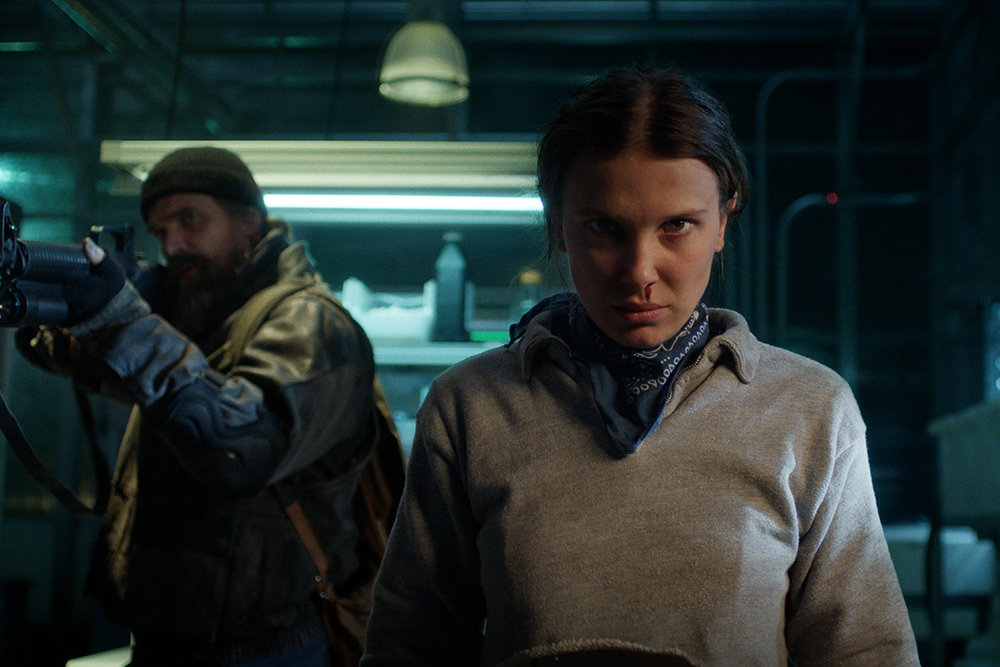
Of course, the Duffers aren't shy when it comes to spectacle, and this season often pushes the boundaries between lavish television and large-scale cinematic event. According to some reports, each episode costs more than most Hollywood blockbusters, and the series certainly looks the part. Every flash of lightning in the Upside Down, every charge of the Demogorgon, every collapsing house, and every chase through an underground tunnel screams “last season.” Frank Darabont's episode in particular, an elaborate sequence involving traps, narrow corridors, and a delightfully twisted nod to Home Alone, shows what happens when the series brings in directors who understand the franchise's pulp-meets-Spielberg DNA. Yet the spectacle never completely overshadows the realistic terror: the Demogorgons are scarier than ever, appearing in brutal, frenzied attacks that remind us why these monsters were once the stuff of streaming nightmares. The late assault on the Wheeler home, where newcomer Nell Fisher as Holly Wheeler narrowly escapes a gruesome visit from the Upside Down, is arguably one of the season's standout sequences: deeply disturbing and masterfully staged, it proves that the Duffers still know how to create a sense of terror without drowning in the noise of special effects.
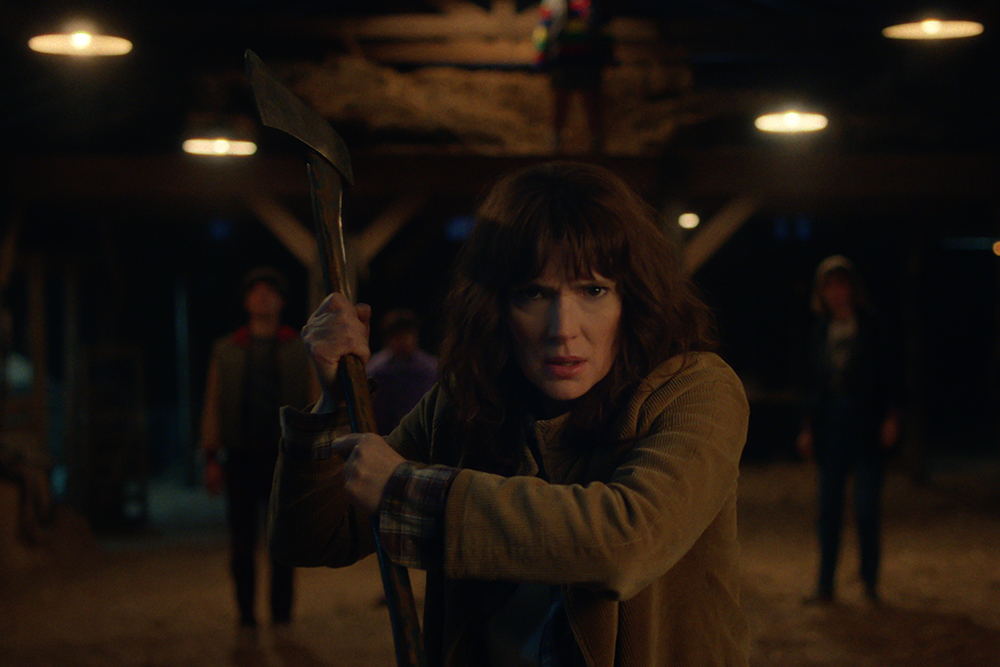
However, despite all this adrenaline, the writing remains as uneven as in previous seasons. The biggest narrative challenge remains the huge cast. With nearly twenty main characters in play, Volume 1 struggles to give each one significant screen time. Some characters, notably Nancy Wheeler, played by Natalia Dyer, now reinvented as the leader of the underground resistance, take center stage with convincing results. Her constant presence and investigative spirit bring coherence to the chaos and give the season a much-needed strategic anchor. Others, such as Jonathan Byers, played by Charlie Heaton, and even Lucas Sinclair, played by Caleb McLaughlin, find themselves in storylines that echo previous seasons: unresolved romantic tensions, cycles of overprotection, and a general sense of being part of the plot rather than driving it. And the endless struggle between Steve Harrington, played by Joe Keery, and Jonathan to win Nancy's affection feels like a storyline that should have been wrapped up two seasons ago. The Duffers clearly want the emotional stakes to pile up, but at times, scattered subplots threaten to dilute the momentum of the central hunt for Vecna.
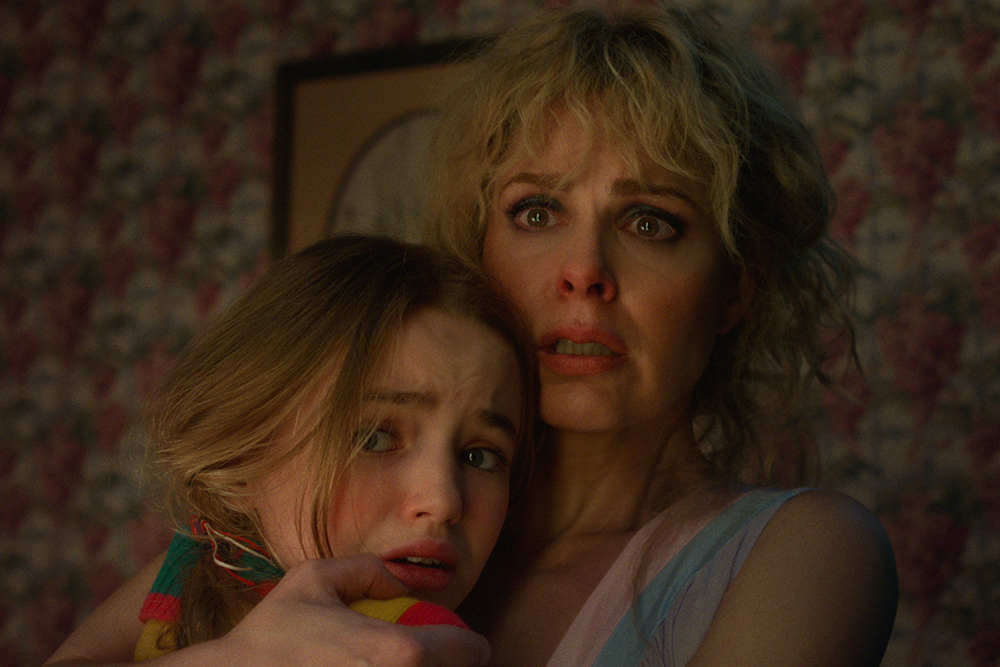
On the villain side, Jamie Campbell Bower remains a frightening presence, but Vecna's physical absence in most of these episodes slightly weakens the level of threat. His new plan mirrors that of Season 4, making his long-term strategy a bit repetitive, even as the writers hint at troubling new revelations about the origins of the Upside Down. Volume 1 begins to lift the veil on the metaphysical layers of this parallel world, suggesting that this nightmarish, dark, spore-filled landscape may be more intentional and sentient than previously imagined. The myth deepens in a visually captivating way, particularly in the sequences where Will, Robin, Holly, and even Erica discover new dimensions, memory spaces, and psychic constructions. But the transformation also carries risks: the more explanations the Duffers give, the more they risk diminishing the mystery that once made the Upside Down terrifying. Some answers seem deserved, while others seem to have been added simply because fans demanded them. The series sometimes forgets that unexplained horror often strikes harder than carefully mapped traditions.
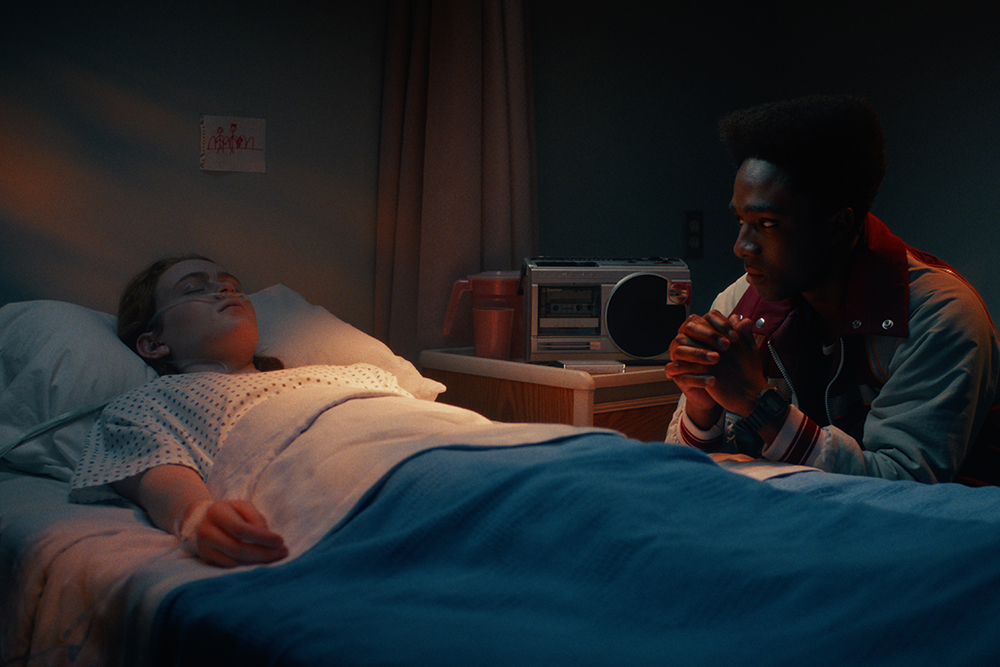
The military plot is mixed. While the oppressive quarantine gives Hawkins an unsettling Children of Men vibe (a town suspended between normality and apocalypse), the human antagonists remain disappointingly underdeveloped. Lieutenant Colonel Jack Sullivan, played by Sherman Augustus, and newcomer Linda Hamilton as Dr. Kay are conceptually interesting, but often written as nods to 1980s B-movie villains, without the charisma that made those archetypes fun. Hamilton brings gravitas, and her scenes crackle with the meta-awareness of a sci-fi icon returning to the realm of government conspiracies, but the script rarely gives her the complexity or menace she deserves. Her role ends up being more logistical than dramatic, creating obstacles rather than shaping emotional or thematic stakes. It's a missed opportunity, especially in a season where the moral ambiguity of the government could have been explored through richer character work rather than heavy-handed detours into exposition.
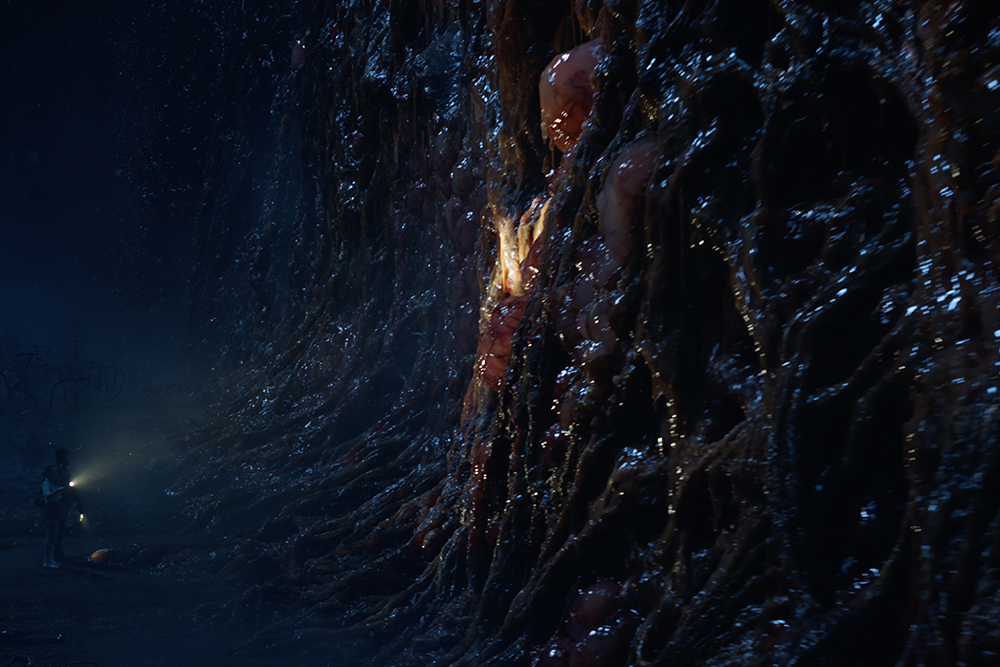
What ultimately elevates Volume 1, however, is camaraderie. The moments when the whole group works in unison—planning incursions into the Upside Down, coordinating disguises via walkie-talkies, hosting secret radio shows, or devising insane, borderline suicidal plans—are when the series recaptures the spark that defined its cultural impact. A sequence where the whole group gathers, side by side, to strategize against Vecna, exudes exactly the “Avengers Assemble” energy mentioned in one review, and for longtime fans, it's impossible not to feel a wave of nostalgia. Gaten Matarazzo delivers arguably his best performance of the entire series, expressing grief, determination, and unexpected maturity as Dustin tries to both honor Eddie Munson, played by Joseph Quinn, and deal with his own guilt. Maya Hawke, meanwhile, steals the show in every scene she appears in, delivering her lines with brilliant energy while grounding Robin's emotional arc in vulnerability rather than eccentricity. Even Millie Bobby Brown, whose character Eleven seems intentionally sidelined at first, shines in her quieter training moments with David Harbour, balancing frustration, love, and the weight of responsibility with a nuance that reflects her evolution from child actress to accomplished artist.
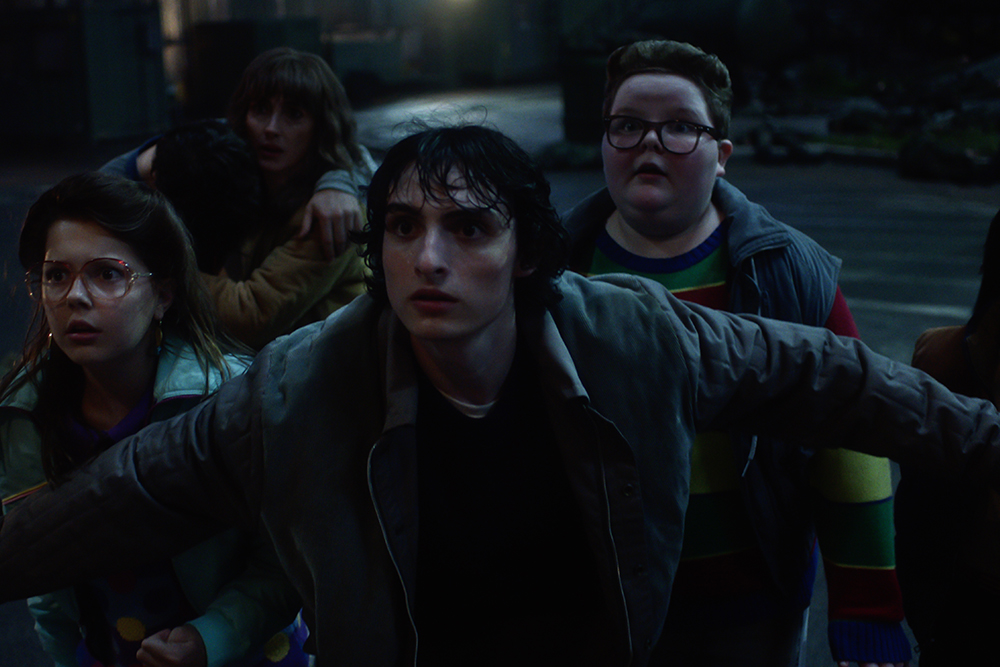
By the end of the fourth episode, with its explosive and bloody cliffhanger, it becomes clear that the real strength of Volume 1 lies not in how it reinvents Stranger Things, but in how it refines what the series has always done best: sincere bonds, makeshift solutions to problems, and monsters that embody the fears its characters can barely express. It's messy, sure. It's certainly pompous. It's sometimes redundant, undeniably. But it's also moving, ambitious, scary, and deeply affectionate, towards its characters, its audience, and its own legacy. It feels like the Duffers have been carefully arranging a row of dominoes for years, and here, finally, those pieces are starting to fall.
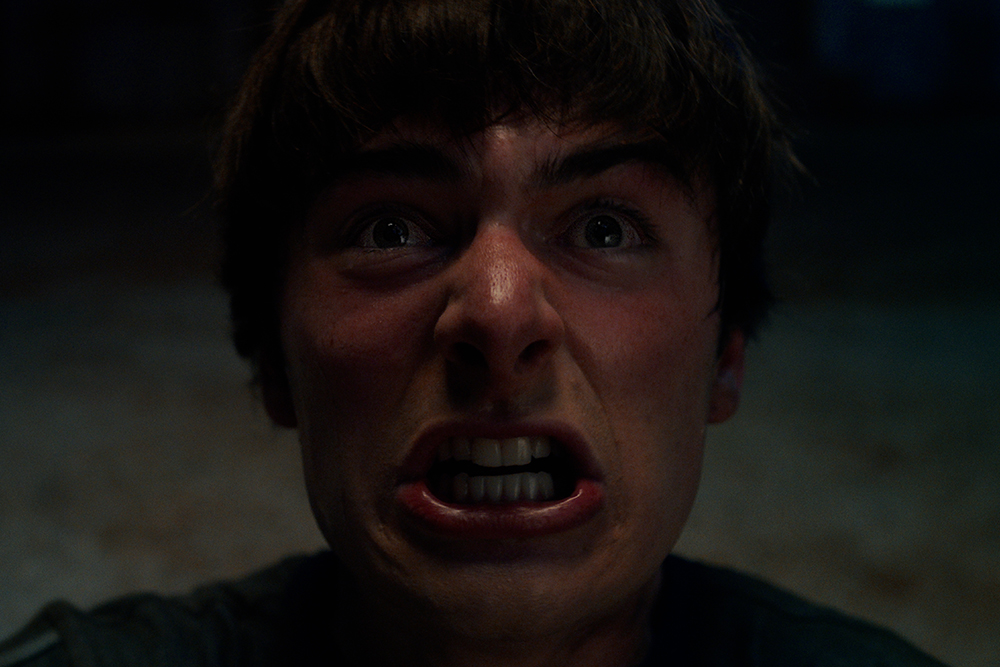
No one knows if the final stretch, volumes 2 and 3, will live up to expectations, but based on this solid and emotionally charged start, the end of Stranger Things promises to be both spectacular and melancholic. Volume 1 may not correct the series' long-standing structural flaws, but it amplifies its strengths with confidence and emotion. If this first chapter is any indication, Hawkins is heading for a finale that will hit like a punch in the gut, and may even earn its place among pop culture's most memorable farewells.
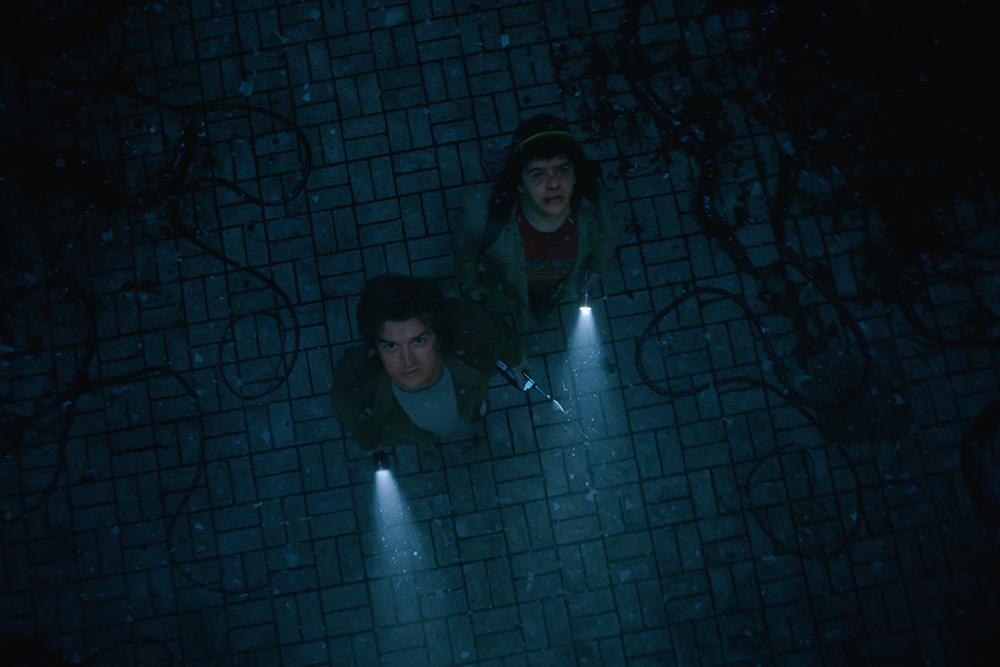
Synopsis :
The fall of 1987. Hawkins is scarred by the opening of the Rifts, and our heroes are united by a single goal: find and kill Vecna. But he has vanished — his whereabouts and plans unknown. Complicating their mission, the government has placed the town under military quarantine and intensified its hunt for Eleven, forcing her back into hiding. As the anniversary of Will’s disappearance approaches, so does a heavy, familiar dread. The final battle is looming — and with it, a darkness more powerful and more deadly than anything they’ve faced before. To end this nightmare, they’ll need everyone — the full party — standing together, one last time.
Stranger Things
Created by The Duffer Brothers
Showrunners : Karl Gajdusek (season 1), Matt Duffer, Ross Duffer
Starring Winona Ryder, David Harbour, Finn Wolfhard, Millie Bobby Brown, Gaten Matarazzo, Caleb McLaughlin, Natalia Dyer, Charlie Heaton, Cara Buono, Matthew Modine, Noah Schnapp, Sadie Sink, Joe Keery, Dacre Montgomery, Sean Astin, Paul Reiser, Maya Hawke, Priah Ferguson, Brett Gelman, Jamie Campbell Bower, Amybeth McNulty, Linda Hamilton
Composers : Michael Stein, Kyle Dixon
Executive producers : Karl Gajdusek, Brian Wright, Cindy Holland, Matt Thunell, Shawn Levy, Dan Cohen, The Duffer Brothers, Iain Paterson, Curtis Gwinn
Cinematography : Tim Ives, Tod Campbell, Lachlan Milne, David Franco, Ricardo Diaz, Caleb Heymann, Brett Jutkiewicz
Editors ! Dean Zimmerman, Kevin D. Ross, Nat Fuller, Katheryn Naranjo
Production companies : 21 Laps Entertainment, Monkey Massacre Productions, Upside Down Pictures
Network Netflix
Release July 15, 2016 – present
Running time : 42–142 minutes
Photos : Copyright Netflix

